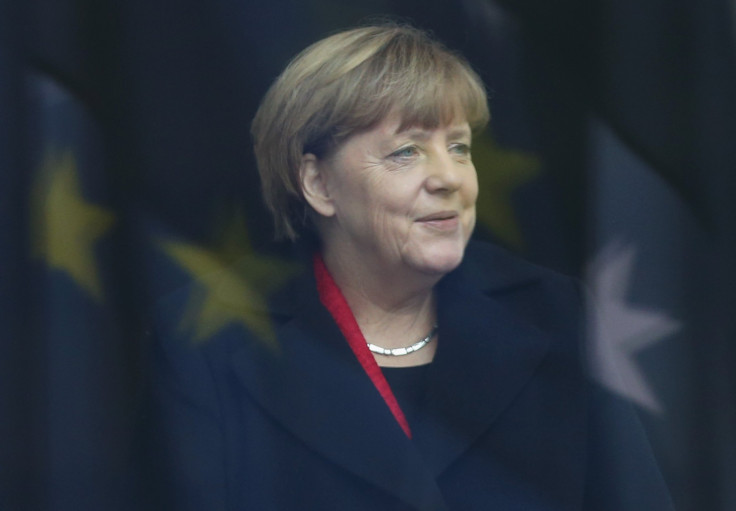EU Refugee Crisis In Germany: Merkel Defends Open-Arms Policy Amid Criticism

As refugees continue to arrive in countries across Europe, German Chancellor Angela Merkel was on the defensive Friday saying she would stick to her open-arms policy approach, Reuters reported. Merkel vowed to fight for her vision of how to deal with the refugee crisis as resources are stretched thin and a Europe-wide solution is still being debated.
“The chancellor has the situation under control and the overall government too,” she said in an interview with ZDF broadcaster. “But we have very special, very challenging times.”
A poll conducted by ZDF showed a narrow majority of Germans thought Merkel was not doing a good job handling the crisis. Officials within Merkel’s own coalition have criticized her leadership saying her open-arms policy has led to even larger numbers of refugees arriving in Germany. The country expects to take in 1 million refugees by the end of 2015. Merkel’s interior minister, Thomas de Maiziere, tried to tighten immigration controls without informing her while Finance Minister Wolfgang Schaeuble said the influx of refugees was due to “a careless skier,” accusing Merkel of causing an "avalanche" of refugees.
Refugees from conflict-ridden and repressive states, including Iraq, Syria, Afghanistan and Eritrea, have continued to make dangerous overland and sea journeys to reach western European states including Germany and Sweden. Arrivals by sea have reached nearly 800,000 people so far in 2015, the International Organization for Migration reported. More than 3,450 people have died while undertaking the journey.
Merkel has been in office for nearly 10 years and said she was not ready to risk her position on the refugee crisis. “I have so much to do at the moment,” she said.
Leaders from the group of 20 countries were scheduled to meet Sunday and Monday in Turkey with the refugee crisis and a collective response at the top of the agenda.
“The G20 must rise to the challenge and lead a coordinated and innovative response to the crisis that recognizes its global nature and economic consequences, and promotes greater international solidarity in protecting refugees,” an EU statement said.
© Copyright IBTimes 2024. All rights reserved.












